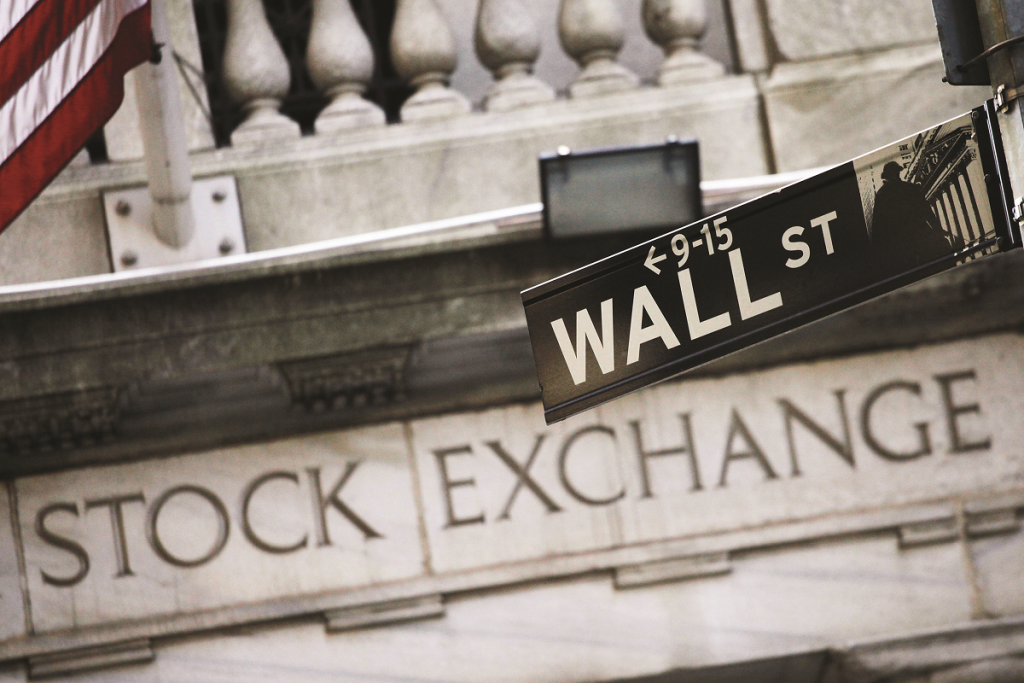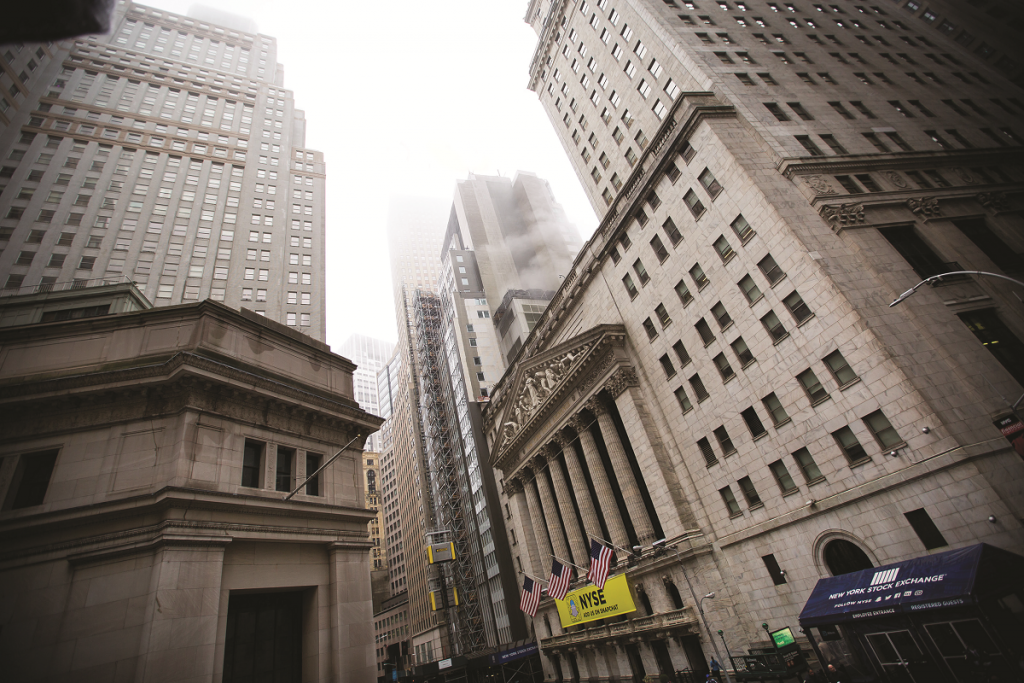
The stock market is reaching all-time highs and so is real estate in many parts of the country. The question is: Is this a good time to be investing? Are fools rushing in . . . or are smart investors getting out?
The biggest financial crisis in history is brewing, and, in my opinion, few people know about it. It is a crisis in our pension funds. There are two reasons why asset prices are high. One is because pension funds are desperately trying to make up for lost time. The other is that the Federal Reserve Bank keeps interest rates low and prints money when necessary. These factors blow both the stock market and the real estate market into massive bubbles. As I write this article, the stock market is hitting record highs — nearly twice the highs achieved before the 2008 crash.
In the world of investing, there are two types of investors — pros and amateurs. The problem is that the vast number of amateurs have no idea who the pros are . . . and who are the con men and women.
Rubber-Chicken Dinners

A friend of mine, a long-time professional financial advisor — a CFP, or Certified Financial Planner, which is levels in education above the average financial planner — often goes to what he calls “rubber-chicken” dinners. His name is John MacGregor. He was telling me about a dinner he went to where he choked down the rubber chicken and waited for the presenter to address the group. Just after dessert, a trim and handsome man (tan, well-dressed . . . and about 35 years old) took the stage. The speaker “wowed” the audience with stories and humor, as well as a few facts, charts and numbers. As soon as the speaker was finished, most of the audience rushed to the tables to sign up for an interview and portfolio evaluation. My friend John joined the crowd . . . and went up to a table to make an appointment for a personal portfolio evaluation.
On the day of the appointment, John met with an attractive young woman who went over the company’s investment program. It was not long before the young woman realized John’s questions about the financial program she was proposing were more sophisticated than those of the average individuals she typically worked with. Exasperated, John asked if he could meet personally with the well-dressed and engaging speaker he had listened to at the rubber-chicken dinner.
John kept insisting and she kept avoiding John’s questions. In response to John’s increasing exasperation, the young woman finally admitted that “the speaker is not a financial advisor. He is a professional actor hired from a Hollywood talent agency. You may have seen him in the pizza commercial that aired during the Super Bowl.”
Stupid FAQ
After writing Rich Dad Poor Dad, which over the past two decades has held its own as an international bestseller and was on The New York Times bestseller list for nearly seven years, many people thought I dispensed or sold investment advice. Untrue. I am an entrepreneur, educator and professional investor, investing for my own portfolio. I am not a financial planner like my friend John. Yet, no matter where I go, people come up to me and ask, “I have $100,000. What should I do with my money?”
 My response is always the same. “If you do not know what to do with your money, don’t announce to the world, ‘I am an idiot with money.’ If you don’t know what to do with your money, there are literally billions of people who do. Their financial advice is, ‘Give me your money. I know what to do with your money. I’ll spend it for you.’”
My response is always the same. “If you do not know what to do with your money, don’t announce to the world, ‘I am an idiot with money.’ If you don’t know what to do with your money, there are literally billions of people who do. Their financial advice is, ‘Give me your money. I know what to do with your money. I’ll spend it for you.’”
That is what people do at rubber-chicken dinners. They line up and hand over their money to total strangers, sales people and (sometimes) Hollywood actors. The problem with the financial planning industry is that most financial planners are salespeople, not rich people. The same is true for real estate brokers, stock brokers and insurance brokers. My rich dad often said, “The reason they are called “brokers” is because they are broker than you.”
Warren Buffett says, “Never ask an insurance broker if you need more insurance. If you ask an insurance broker that question, the answer is always ‘Yes. You need more insurance.’” Warren Buffett should know. GEICO, one of the largest insurance companies in America, is a wholly-owned subsidiary of Buffett’s Berkshire Hathaway.
What Should You Do?
I am a financial educator, an entrepreneur in financial education. I always advise, “Invest in financial investment courses before investing your hard-earned money.” That is the same advice my rich dad gave me in 1973, the year I returned from Vietnam. My rich dad said, “I am an investor. I am not a teacher. Find a teacher, take courses, and then talk to me about investing.”

Late one night, in 1973, I was channel surfing and saw an infomercial about investing in real estate. The program offered a free seminar, which I attended and then signed up for the three-day course. The three-day course cost me $385 — a fortune in 1973 — but that investment has made me a multimillionaire many times over. Today, I continue to attend two to three investment seminars each year. I take seminars on stocks, bonds, real estate, oil and precious metals. So, do most of my friends. Birds of a feather, as they say, do flock together . . . at investment seminars.
The Good News and the Bad News
The good news is that the world economy is in a giant bubble, the biggest bubble in world history. The bad news is, the bubble is about to burst.
 A bursting bubble can be the best news for someone who invested, first, in their financial education before putting their money into an investment, the type often sold at a rubber-chicken dinner.
A bursting bubble can be the best news for someone who invested, first, in their financial education before putting their money into an investment, the type often sold at a rubber-chicken dinner.
In 2008, my friends and I knew the market was about to burst because foolish people were investing in real estate they could not afford. Many were using NINJA loans, No Income/No Job subprime loans, and buying their dream houses, houses they could not afford.
When we saw fools rushing in, in 2008, my friends and I sat back and waited. In 2009, after both the real estate market and stock market crashed, we began investing.
As the old saying goes: “It was the best of times; it was the worst of times.”
In 2019, we are in such a time. As I write, the U.S. economy is red hot . . . and fools are rushing in. Please do not be one of the fools. Since I sell financial education, I suggest investing in your financial education and getting ready for the crash and fools who start rushing out.
Real Financial Education
I’ll close with a final bit of real financial education. There are two types of financial bubbles. Today’s bubble is a bubble caused by debt. Ever since 2008, the world economy has been blown into the biggest debt bubble in world history.


The second type of bubble is an economy that’s growing because businesses are growing. For example, Silicon Valley is in a bubble because Silicon Valley is where the Information Age blossomed. When the next bubble bursts, look for areas that will grow again and avoid areas that will need government handouts to survive.
Seeking real financial education is a much smarter move than saying, “I have $100,000. Tell me what to do with my money . . .”

